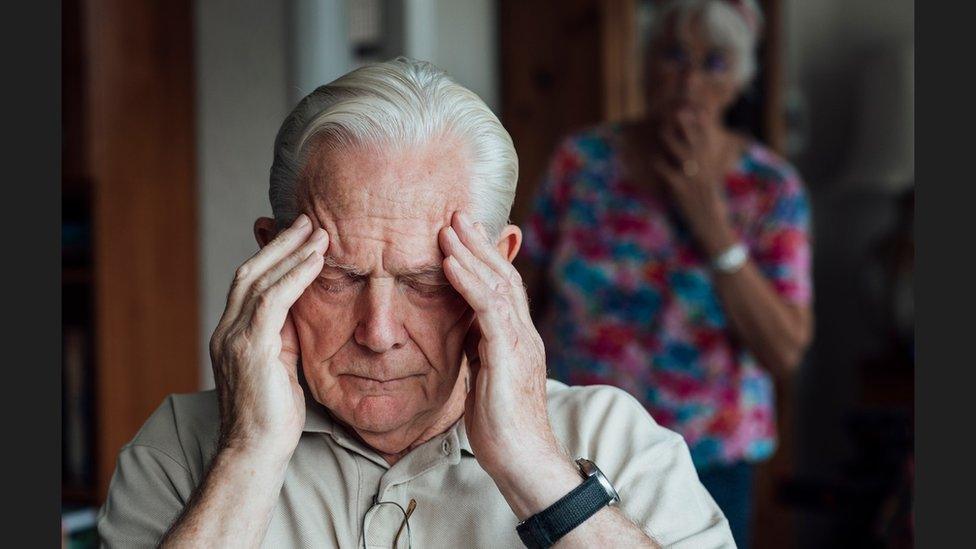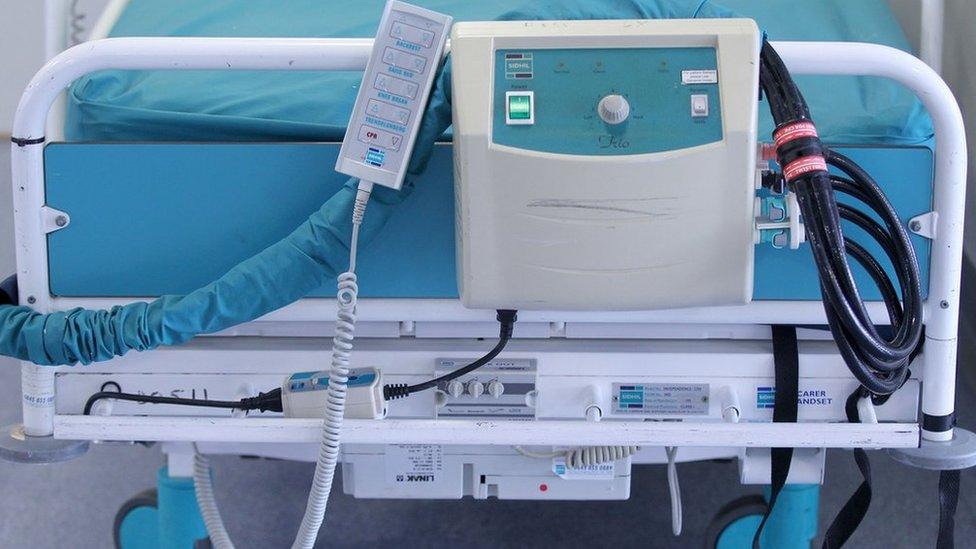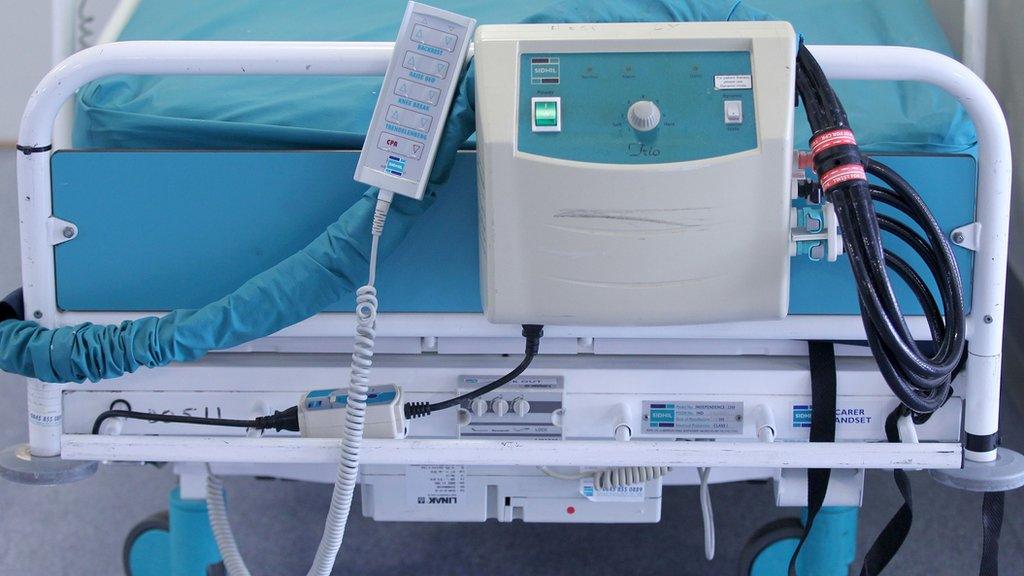Dorset: Dementia sufferers to more than double in 10 years
- Published

The number of dementia sufferers is projected to more than double in Dorset over the next decade
The number of people living with dementia is expected to more than double over the next decade, new figures for Dorset suggest.
Dorset Council is predicting around 16,000 adults will have the condition as its over-65 population rises by 23%.
It is also anticipating those with learning difficulties will increase by a third and there will be a 38% rise in demand for care in the home.
The council currently spends £330,000 a day on adult care.
Those requiring a council-funded package on leaving hospital rose from 12 to 35 per week after the pandemic, figures presented to Dorset councillors revealed.
The council said most people self-funded their care, leaving the authority to step in to help only when an individual had little money left.
It said the annual budget for the service was expected to rise to just over £143m in the coming financial year, with expected savings of around £6m, according to the Local Democracy Reporting Service.
However, councillors on the health and scrutiny committee were told energy costs, inflation and pay would add more than £19m to running costs from April.
The committee heard the cost of hospital discharges alone had risen from £4m in 2019 to £15m in the current year.

Hospitals are unable to discharge some patients due to care sector shortages
Dorset Council's executive director of adult services Viv Broadhurst said changes had been made to cope with the expected demand, including additional support for the social care workforce.
Ms Broadhurst said measures were proposed to prevent, or delay, hospital admissions and to make support available through Care Dorset to allow people to live independently.
But committee chair Gill Taylor said while she welcomed an extra £11.5m in the budget it might not be enough if care staff could not be found.
A report to the council last September said 22% of all social care beds in the county were empty, leaving more than 700 spaces, because of staff shortages.

Follow BBC South on Facebook, external, Twitter, external, or Instagram, external. Send your story ideas to south.newsonline@bbc.co.uk, external.
Related topics
- Published12 October 2022
